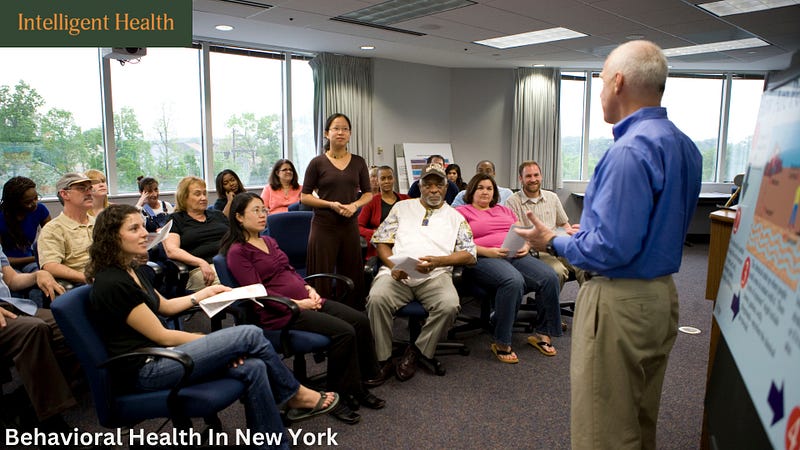The Importance of Behavioral Health Awareness in New York Communities
The emotional, psychological, and social well-being of individuals that influences how they think, feel, and act is referred to as behavioral health. It likewise influences individuals’ pressure the board, relational connections, and direction. In bustling urban centers like New York, where the pace of life is rapid and stress levels can be high, understanding and promoting behavioral health is crucial. This blog explores the importance of behavioral health awareness in New York communities, highlighting the need for accessible resources and support systems.
Understanding Behavioral Health
The relationship between behaviors and physical, mental, and spiritual health is referred to as behavioral health. It includes a wide range of activities that promote mental health, such as:
Mental Health: Managing conditions like depression, anxiety, and bipolar disorder.
Substance Use: Addressing issues related to the misuse of alcohol, drugs, and other substances.
Social Problems: resolving issues with conduct, like dietary problems and ADHD.
In New York, the fast-paced lifestyle, high cost of living, and social pressures can contribute to behavioral health challenges. Awareness and education about these issues are essential for fostering healthier communities.
The Need for Behavioral Health Awareness
Early Intervention: Early recognition and treatment of behavioral health issues can prevent more severe problems from developing. Awareness campaigns can educate the public on the signs and symptoms of common behavioral health disorders, encouraging early intervention and reducing the stigma associated with seeking help.
Reducing Stigma: Despite advances in mental health care, stigma remains a significant barrier to seeking treatment. By promoting behavioral health awareness, communities can challenge misconceptions and encourage open discussions about mental health, leading to a more supportive environment for those in need.
Improving Access to Care: Awareness initiatives can highlight the available resources and services for behavioral health in New York. Many individuals may be unaware of the support systems available to them, such as counseling services, hotlines, and community programs. Increasing awareness can help bridge this gap and connect people with the care they need.

Supporting At-Risk Populations: Certain populations, such as low-income families, immigrants, and the elderly, may face additional barriers to accessing behavioral health care. Awareness efforts can target these groups, providing them with tailored information and resources to address their unique needs.
Behavioral Health Resources in New York
In New York, a variety of resources and services support behavioral health:
Community Mental Health Centers: These centers provide a range of services, including counseling, crisis intervention, and psychiatric care.
Hotlines and Helplines: Services like the National Suicide Prevention Lifeline and local crisis hotlines offer immediate support for individuals in distress.
Addiction Treatment Programs: Alcoholics Anonymous and Narcotics Anonymous are two organizations that offer assistance to people who are struggling with substance use disorders.
School-Based Programs: Many schools in New York offer mental health services and educational programs to support students’ behavioral health.
Telehealth Services: With the rise of telemedicine, many behavioral health services are now available remotely, making it easier for individuals to access care from the comfort of their homes.
Community Initiatives and Programs
Several community-based initiatives in New York focus on promoting behavioral health awareness and support:
Public Awareness Campaigns: Organizations and government agencies run campaigns to educate the public about behavioral health, reduce stigma, and promote available resources.
Workshops and Training: Community centers and non-profits offer workshops and training sessions on topics such as mental health first aid, stress management, and substance abuse prevention.
Assistance Groups: Individuals can receive peer support and share their experiences in a secure setting at local support groups.
Events and Outreach: Community events, such as health fairs and wellness workshops, raise awareness about behavioral health and connect individuals with local resources.
Conclusion
Promoting behavioral health awareness in New York communities is vital for creating a supportive and informed environment where individuals can seek help without fear of stigma. Early intervention, education, and access to care are essential components of a comprehensive approach to behavioral health.
For more information and resources on behavioral health in New York, visit GoIntelligentHealth.com. They offer valuable insights and support services to help individuals and communities thrive. By prioritizing behavioral health awareness, we can work together to build healthier, more resilient communities in New York.

Comments
Post a Comment